When you’re looking to rent a scooter in Honolulu, weight may not be the first thing that comes to your mind. But it actually makes a big difference! From how easy it can be to handle to how smoothly it rides and even how much fuel or battery it consumes, a scooter’s weight can affect your whole travel experience.
Whether you’re new to riding or just want to pick the right set for zipping through the island, understanding how much these rides weigh can help you make the best choice.
Let’s dive into the details to make sure your next adventure is comfortable and smooth!
Why Scooter Weight Matters
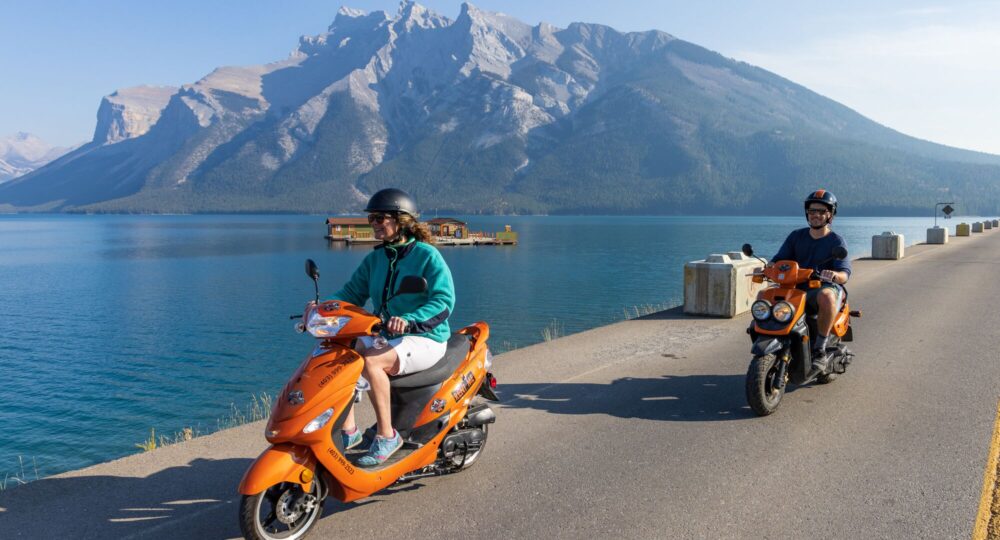
Ease of Handling
If you have just started riding scooters, a lightweight model can make a huge difference! Heavier scooters are comparatively harder to manage and maneuver, especially if you’re new to riding. Lightweight scooters, however, are easy to control and turn, which can be a big bonus when you’re navigating busy streets or parking in Honolulu.
Fuel Efficiency
The weight of your scooter also affects how much fuel it consumes during a ride. Heavier scooters and e-bikes need more power to move, so they burn up more fuel or use up more battery. Hence, lightweight scooters have an edge over heavier scooters due to their fuel economy, which means you can cover more distance without having to fuel up.
Transportation and Storage
At times, when you need to lift or park your scooter, a lighter scooter is easier to pick up if you need to move it or load it onto the rack. The total weight also makes a difference when it comes to parking because a light scooter is easier to nudge around when you’re getting it into tight spaces. Plus, if you have a lightweight electric scooter or e-bike, it gets easier to stow away without taking up too much space or giving you a backache.
Safety and Mobility
Weight also plays a big role in how stable the scooter feels, especially if you’re riding on uneven terrain or going faster. Heavier scooters feel sturdier and grounded, which can give a nice sense of stability, especially if you’re on a bumpy path or dealing with windy conditions. Hence, while lightweight scooters are great for maneuverability, a little extra weight can help you feel more anchored on the road.
Weight of Different Types of Scooters

Scooters, e-scooters, and e-bikes each have a unique range of weight and characteristics. Here’s a breakdown to give you a good idea of what you can expect with each one, whether you’re looking for something lightweight or a heavier scooter.
Gas-Powered Scooters
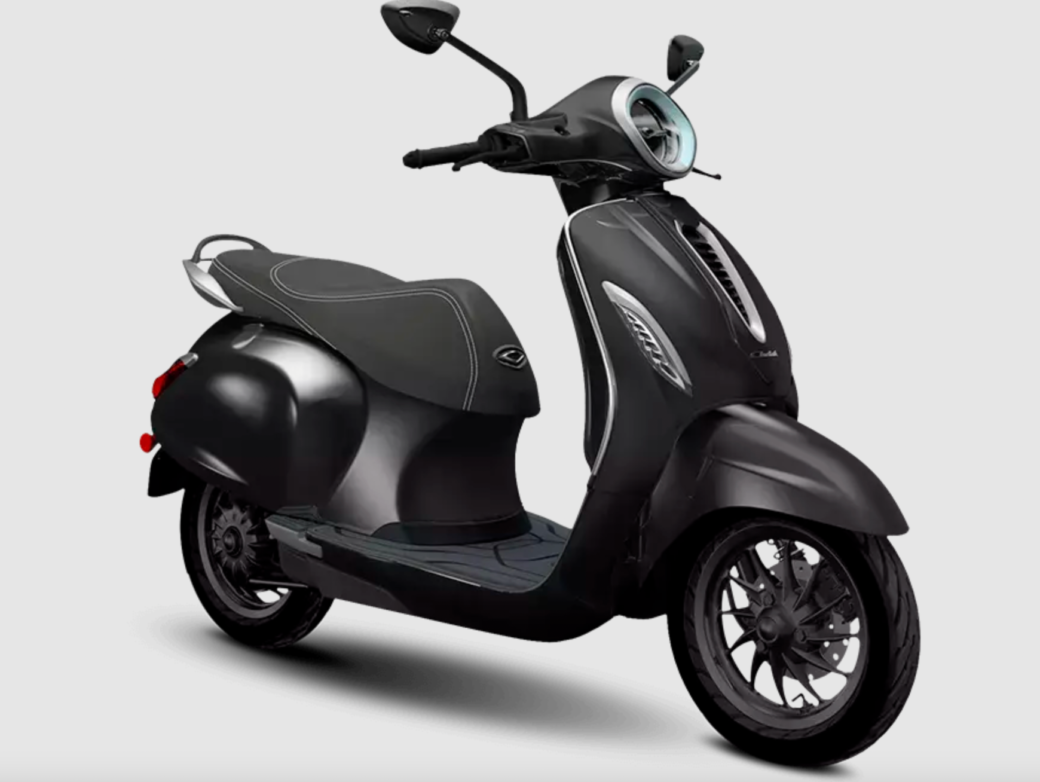
Average Weight Range
Gas-powered scooters usually weigh around 100 and 300 lbs. The lighter models are often around 100-150 lbs, which makes them a bit easier to maneuver, while the heavier models can get closer to 250-300 lbs.
Examples of Popular Models
Common models, like the 2023 Breeze Moped 50cc, weigh about 180 to 200 pounds. These scooters are great for city streets and short trips and are stable on the road.
Factors Affecting Weight
Multiple factors contribute to the weight of a gas-powered scooter. The size of the engine is one important factor—the larger the engine, the heavier the scooter. Scooters with bigger fuel tanks or more durable metal frames are also heavier. For example, a sturdy steel frame will weigh more than an aluminum one but will add durability to the ride.
Electric Scooters (E-Scooters)
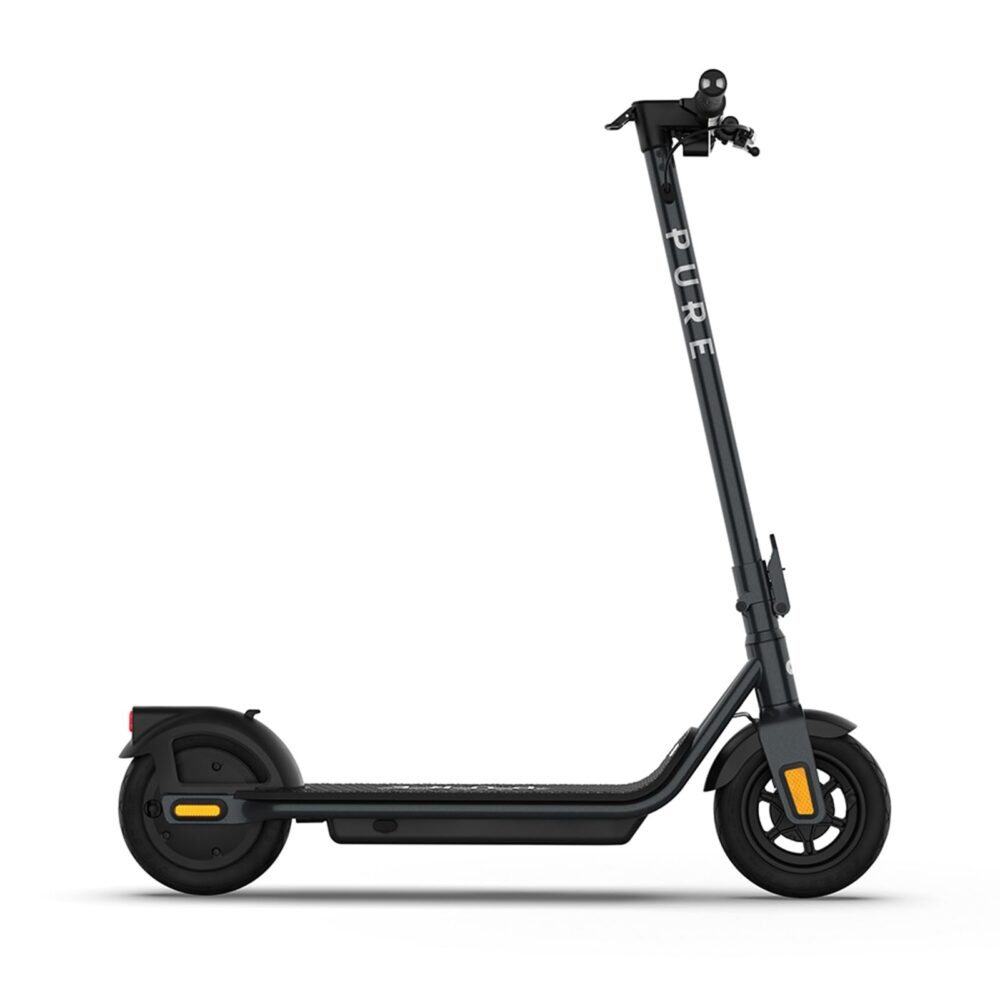
Average Weight Range
E-scooters are much lighter than gas-powered scooters, usually weighing between 15 and 100 lbs. These lightweight electric scooters, meant for quick, short-distance rides, are usually on the lower end of the spectrum, while powerful, long-range e-scooters can approach the heavier end.
Examples and Weights
Popular e-scooter models vary a lot in terms of overall weight. For example, the Xiaomi Mi M365 weighs around 26 lbs, making it light and easy to carry. In contrast, more robust models like the Dualtron Thunder weigh close to 95 lbs, thanks to their larger batteries and powerful motors.
Battery Size and Motor Power Impact
Unlike gas scooters, the weight of e-scooters mainly comes down to the battery size and motor power. A larger battery adds more weight but extends the scooter’s range. Similarly, high-powered motors can boost top speed and acceleration but will add a few extra pounds.
Electric Bikes (E-Bikes)
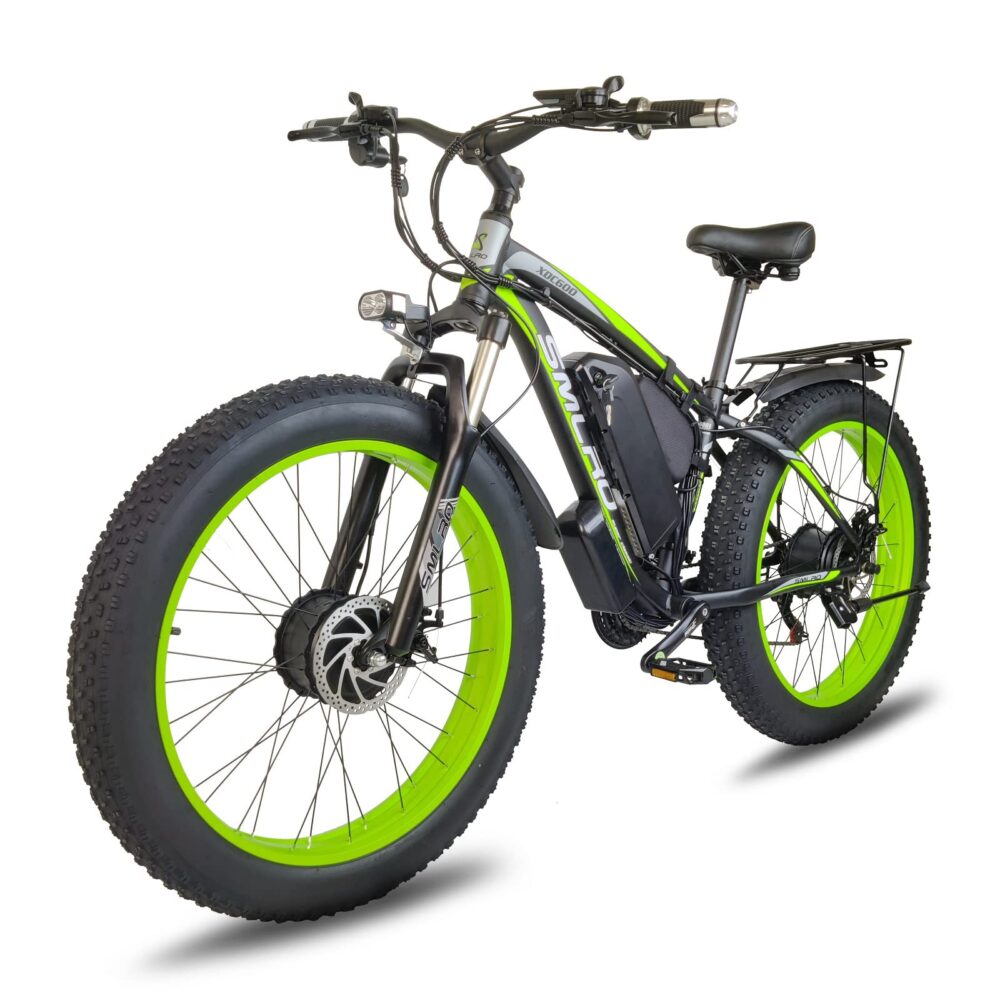
Average Weight Range
E-bikes generally weigh between 40 and 80 lbs. This is heavier than most e-scooters but lighter than a typical gas-powered scooter. E-bikes are great at balancing weight and power flexibly, making them a great pick for longer range, hillier terrain, or uneven ground.
Popular Models and Weights
The Rad Power RadRunner weighs around 65 lbs, while the lightweight Specialized Turbo Vado SL tips the scale at just under 40 lbs. You’ll notice that many e-bike models hover around this weight range, depending on their features.
Frame Material and Battery Impact
The materials used in the frame play a big role in the weight. Aluminum frames are common because they’re lightweight and durable. Carbon fiber frames, while more expensive, are even lighter and often found in higher-end e-bikes. Battery size also affects weight—the bigger the battery, the longer the range, but the heavier the bike.
As you can see, each model or type of scooter has its own strengths, so you need to consider what riding experience you’re looking for and the weight capacity that you will be comfortable handling.
How to Choose the Right Scooter Based on Weight
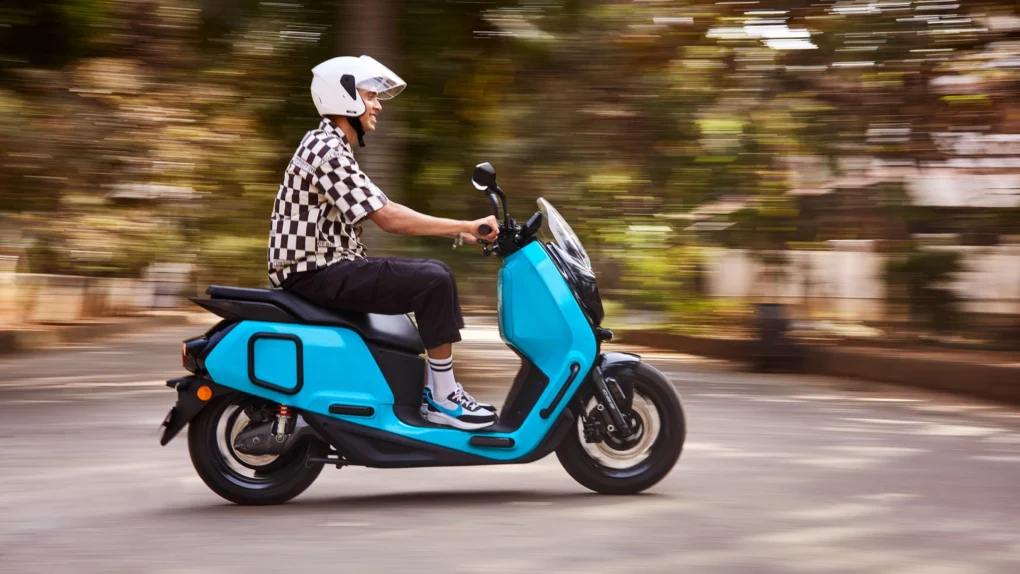
By now, you know why it’s important to factor in the weight of the scooter when you are choosing a scooter for yourself. Here are some quick tips to help you make a decision:
For Beginners
If you’re new to scooters, a lighter model, especially in the e-scooter range, is a good idea. Lighter scooters are easier to handle and control, especially in Honolulu city traffic or maneuvering in tight spots. Plus, since they’re easier to lift and park, it saves you time spent on parking, making them more beginner-friendly and less intimidating to those just getting the hang of riding.
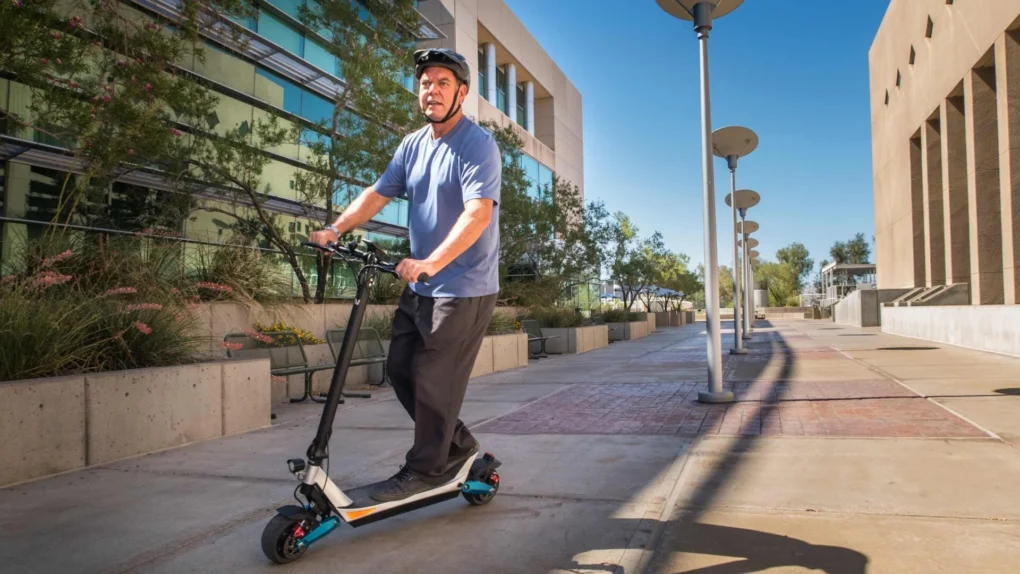
For Long Rides or Highway Use
When it comes to long distances or short highway stretches, a heavy scooter can be your best friend! The extra weight helps you feel more sturdy and grounded due to the added stability and security at higher speeds. Heavier scooters tend to handle bumps and breeze better, too, so if you’re planning to ride outside town and explore the island, opting for a heavier model is the way to go.
Battery and Range Considerations
For e-scooters and e-bikes, weight usually correlates with battery size. Heavier e-scooters and e-bikes have bigger batteries, helping you go farther on a single charge. But bigger batteries also mean heavier weight, so it’s a good idea to consider balancing range and portability based on your plans.
Overall, finding the right scooter weight is about thinking through where and how you’ll ride. Light and nimble for quick city rides? Or heavy and steady for longer adventures?
How Weight Matters at Honolulu Moped Rentals
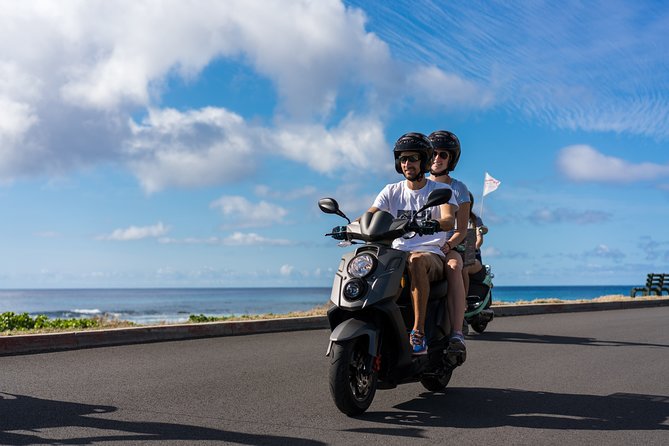
When it comes to renting a scooter, e-scooter, or e-bike in Honolulu, taking weight into consideration can make or break your entire experience. Whether easier handling on busier streets or increased stability on longer rides, choosing the right scooter weight helps you make the most of your Hawaiian adventure!
Lighter models are great for quick, city-friendly rides, while heavier scooters or e-bikes offer the stability and range needed for exploring more of the island without frequent recharges or refueling.
At Honolulu Moped Rental, we offer a range of options designed to meet all kinds of needs—whether you’re a beginner looking for something light and easy to control or an experienced rider looking for something more grounded for long trips. When you choose the right model for your comfort, range, and travel plans, you’re setting yourself up for a smooth and enjoyable journey in Honolulu.
So go ahead, explore the selection, and find the ideal ride to match your Honolulu adventure!
FAQs
1. How much does a scooter weigh?
The average scooter weight varies. Gas scooters weigh between 100 and 300 lbs, e-scooters 15 to 100 lbs, and e-bikes 40 to 80 lbs.
2. Why does the weight of a scooter matter?
Weight affects handling, portability, stability, and fuel efficiency. Lighter scooters are easier to maneuver, while heavier ones are more stable at high speeds or long distances.
3. Are lighter scooters better for beginners?
Yes, lighter scooters and e-scooters are recommended for beginners as they are easier to handle and control and less intimidating to ride.
4. Can I ride a heavier scooter for longer distances?
Yes! Heavier scooters are more stable and may have larger fuel tanks or better battery life for longer rides without stopping to refuel or recharge.
5. How does an e-scooter weight affect battery range?
Heavier e-scooters often have bigger batteries for longer ranges. However, you have to balance battery size with the weight you can handle.
6. What scooter should I rent for city vs longer trips?
A lighter e-scooter is best for city riding because it is easier to maneuver in traffic and parking. For longer trips, consider a heavier scooter or e-bike for more stability and comfort.

